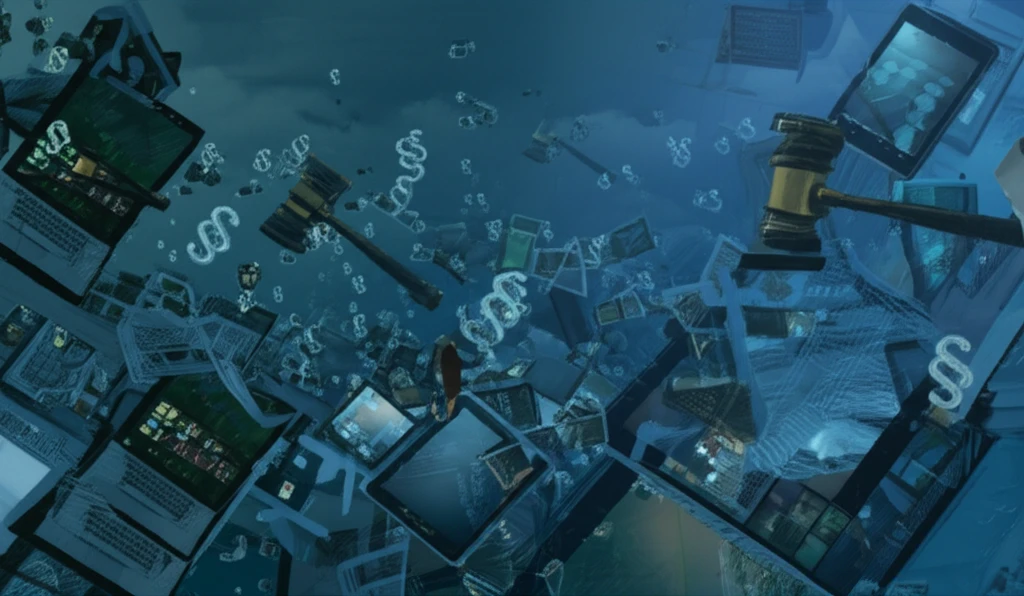
Decoding Digital Dilemmas: Navigating the Complexities of Internet Law and E-Commerce
"From Filesharing to Online Contracts: Understanding Your Rights and Responsibilities in the Digital Age"
In today's interconnected world, the internet and e-commerce have become integral parts of our daily lives. From streaming our favorite movies to managing our finances, the digital realm offers unparalleled convenience and opportunities. However, this rapid evolution has also created a complex web of legal issues that many of us struggle to understand. Navigating this landscape requires a solid grasp of the rights, responsibilities, and regulations that govern online activities.
This article dives deep into the legal principles shaping the digital world, focusing on key areas like filesharing, online contracts, and the implications of data privacy. We'll examine landmark court decisions, dissect complex legal jargon, and provide practical insights to help you protect yourself and make informed decisions in this ever-evolving environment. Whether you're a consumer, a business owner, or simply a curious individual, this guide will equip you with the knowledge you need to thrive in the digital age.
The legal landscape of the internet and e-commerce is constantly shifting, with new challenges and opportunities emerging daily. This article aims to provide a clear, concise, and up-to-date overview of the critical legal issues at play. By understanding these issues, you can confidently navigate the complexities of the digital world and make informed choices that protect your interests and rights.
Filesharing and Copyright Infringement: Understanding the Legal Risks

One of the most prevalent legal challenges in the digital age revolves around filesharing and copyright infringement. Sharing copyrighted material without permission, whether through peer-to-peer networks or other platforms, carries significant legal risks. This section explores the key aspects of copyright law, the liabilities of internet users, and how to avoid copyright infringement.
- Copyright Infringement: The unauthorized use of copyrighted material, which can result in lawsuits and financial penalties.
- Liability of Internet Users: The legal responsibility of individuals who download or distribute copyrighted content without permission.
- Safe Practices: The measures individuals can take to avoid copyright infringement, such as using licensed content and respecting copyright laws.
- Landmark Court Decisions: Highlights of key legal rulings that have shaped the landscape of copyright law and filesharing.
Empowering Yourself in the Digital Age
The internet and e-commerce offer incredible opportunities, but they also present complex legal challenges. By understanding the key issues discussed in this guide – filesharing, online contracts, data privacy, and the evolving legal landscape – you can navigate the digital world with greater confidence. Stay informed, protect your rights, and make informed choices to thrive in the ever-changing digital age.
